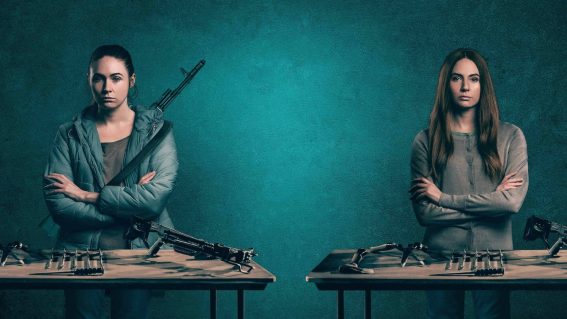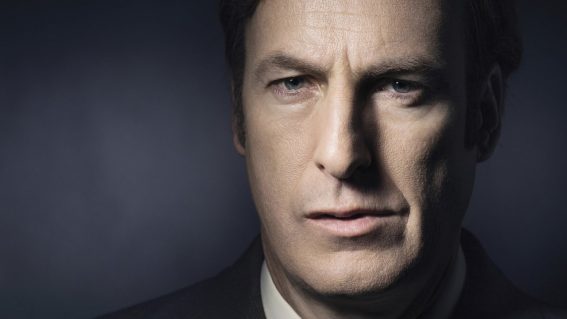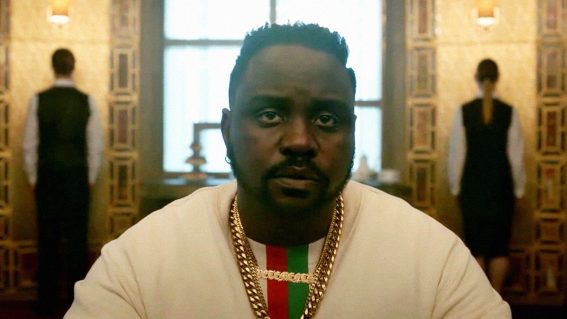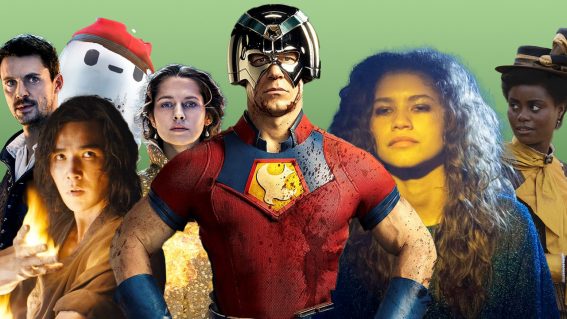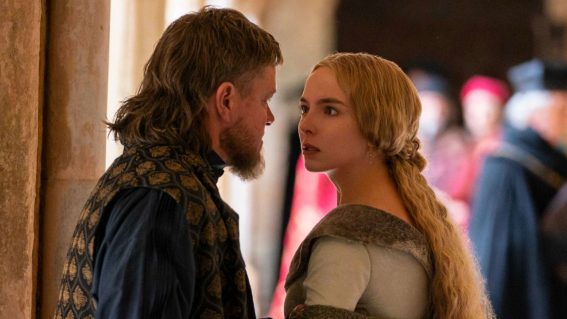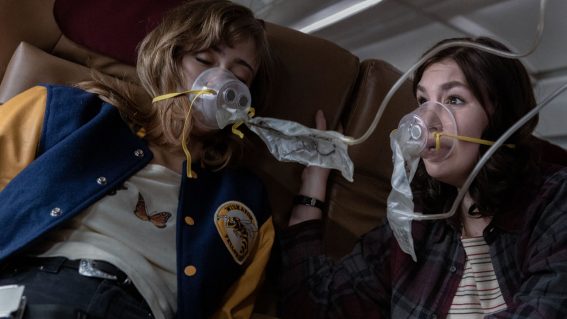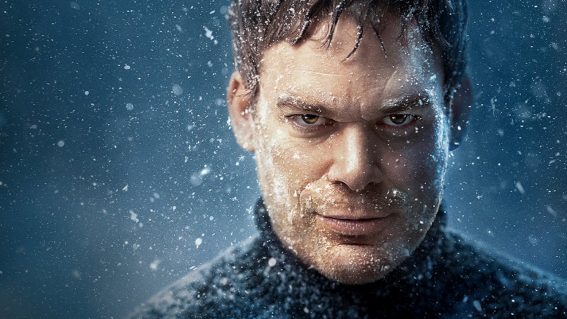Chris Rock stars in Fargo’s fourth season, its most filmic yet
Jason Schwartzman and Jessie Buckley also feature.
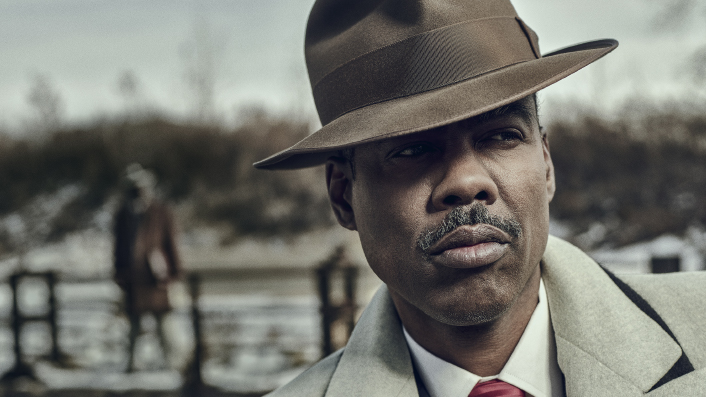
The much-anticipated fourth season of Fargo is about to kick off on Neon from September 29. The anthology crime series is back with another fresh cast and brand new tale to tell, led by Chris Rock and featuring Jason Schwartzman, Jessie Buckley, Timothy Olyphant and Ben Whishaw. Tony Stamp previews the drama to come in this gripping and morally ambiguous new season—Fargo’s most filmic yet.
A lot has already been said about the unlikely success of Noah Hawley’s Fargo. An adaptation of sorts of the Coen Brothers classic (eighteen years after the fact), it didn’t continue the story so much as repackage its flavour of Minnesota Nice and not-so-nice crime stuff into a new concoction. The show boasted an A-list cast (going back through the seasons it hits home how many movie stars are here), and an increasingly cinematic approach to storytelling. Hawley’s sprawling tales got more ambitious, the cast swelled, and they remained, to use a term that’s been applied to prestige TV since The Wire, “novelistic” (helped by the fact that Hawley is, in fact, a novelist).
See also:
* New release movies & series on Neon
* Everything coming to Neon in October
Enthusiasm began to wane during season three when Ewan McGregor, playing twins, came up against David Thewlis’ bad guy, but allow me to leap to its defense here for a moment. There’s been a lot of fiction that’s tried to grapple with the Trump era, and Thewlis’ monologues about the flexible nature of truth did as good a job as any. When Carrie Coon’s law-woman (that season’s Marge Gunderson stand-in) tries to take him on with objective facts, they’re useless in the face of unrepentant lying. Perhaps there’s a lesson to be learned there.
Regardless, Hawley’s reputation flagged a bit more as he brought his third season of the psychedelic superhero saga Legion to a close. It was a show that operated on a very particular wavelength, and most people struggled to stay on board. Then came a disastrous attempt to segue into film with the Natalie Portman-starring flop Lucy In The Sky. Since then Hawley has licked his wounds and after a three-year wait, Fargo Season 4 is here. Anticipation has been piqued by a new time period (the 1950s), a setting outside Minnesota (Kansas), and the casting of Chris Rock in a rare dramatic role.
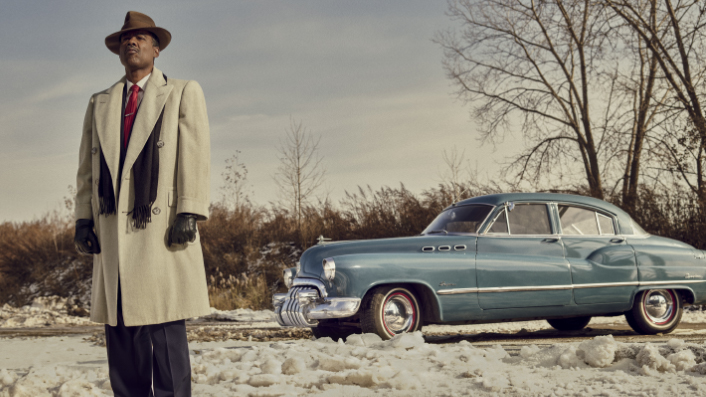
And it turns out there’s plenty to be excited by. Rock aside, there are treats galore in the casting, including Timothy Olyphant slotting in perfectly as a US Marshall hunting two escaped convicts, Jason Schwartzman is a diminutive mob boss, Ben Whishaw his Irish associate, and best of all, Chernobyl‘s Jessie Buckley as a sociopathic nurse. She’s remarkable, a despicable, sour character practically dripping with racism, but always wearing a sunny face. You can’t keep your eyes off her. Her surname by the way is Mayflower.
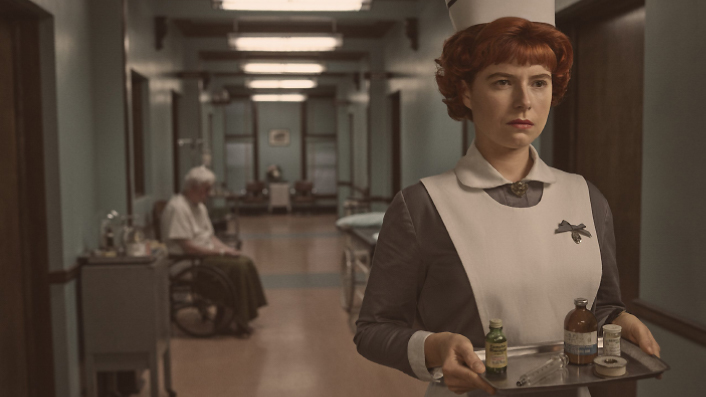
As you might expect, as the season starts it looks like race relations will play a big part in things. Set in the Jim Crow South and concerning a Black crime family led by Rock and Glynn Turman going up against an Italian one led by Schwartzman and his cousin Salvatore Esposito (TV’s Gomorrah), there’s also a mixed-race family who initially seem to be our focal point, particularly young Emyri Crutchfield, whose parents are played by Anji White and musician Andrew Bird (of all people).
As the cast of characters inflates though, they diminish, and while America’s unceasing racial tensions are certainly a focus, Hawley is, (as of the three episodes I’ve watched to date), more concerned with the country as a whole, and in particular its obsession with the almighty dollar. In a key scene, Rock holds a roll of bills out to a Black beggar. When he puts it back in his pocket the man is aghast, and Rock remarks to his offsider “you see that? I just stole from that man”.
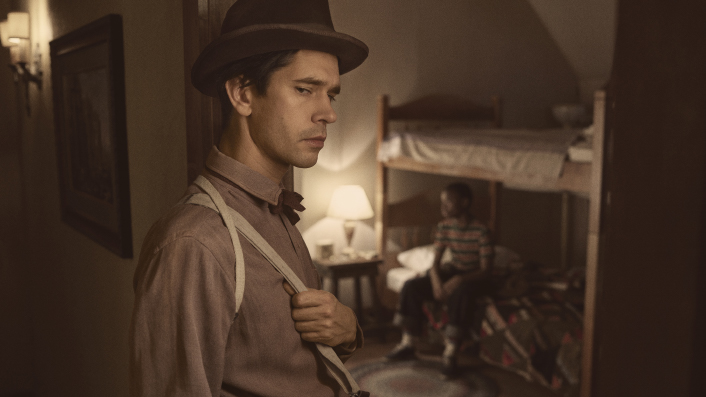
The big idea that apparently fueled this season happens in some of its early scenes. Two crime families meet (Irish and Italian) and as a kind of insurance, trade sons. The adolescent versions of Schwartzman and Wishaw, sons of the respective families’ bosses, go to stay with their counterparts. For several years as it turns out. Jumping ahead a decade or so we see the same thing happen, this time with Rock’s son and the Italians’ newer offspring. It’s an intriguing idea which acts as the catalyst for all sorts of tension. True to form with Fargo, the heat is slowly turned up as the season progresses.
The usual stylistic touches are back in full force too. We get plenty of split-screen action to keep track of the many players, and the requisite slow-motion shots of men in suits accompanied by honking brass music. This time though the suits are natty ’50s cuts, and joining them are some wonderfully groomed thin moustaches. The usual shoutouts to other Coen Brother films are present too, including plenty to the most obvious reference point, Miller’s Crossing.
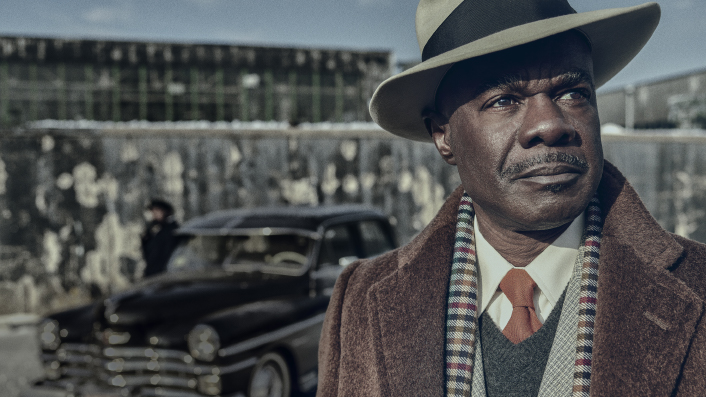
It’s true that Fargo the show has a tendency to be broad in a way that Hawley is unable to wrangle quite like the Coens were. But then who else really can? Seasons four does feel a tad more grounded than previous ones, despite a range of characters that read as wacky on paper, like Olyphant’s Marshall who acts deaf when he hears something he doesn’t like, Jack Huston as an obsessive-compulsive crooked cop, and Esposito bugging his eyes out like a wolf in a looney tunes cartoon at every opportunity.
It’s also the most filmic season yet, looking like a generously-budgeted movie more than ever, and shot in ways that are often interesting, and sometimes beautiful. It’s no secret that this kind of adult, morally ambiguous storytelling has found a new home on our TV screens, and we should be grateful it has.
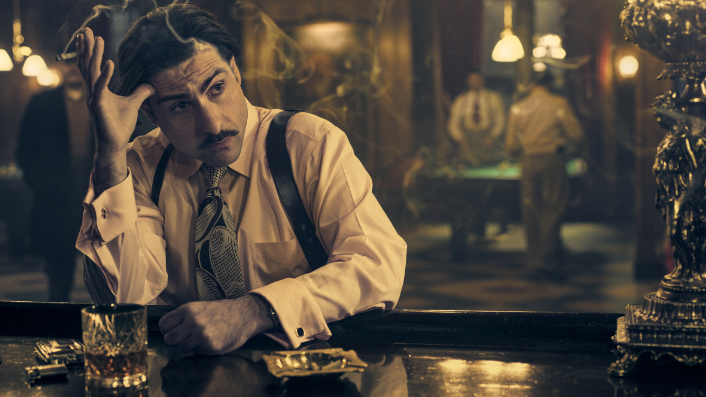
Perhaps not so adult: the first episodes feature a lot more fart jokes than I was expecting, and a focus on bodily functions in general. I’m not 100% sure what Hawley’s trying to say with this, but I’m sure a thematic throughline will emerge. He is after all a novelist.
Back in 2014 when it premiered, it nagged me that the show had seemingly missed the point of the movie: that crime in these small towns was unheard of until out-of-towners with zero moral compass rode into town and started feeding people into wood chippers. But as the show progressed it flipped that on its head—these places were lousy with murder and misdeeds, you just had to know where to look.
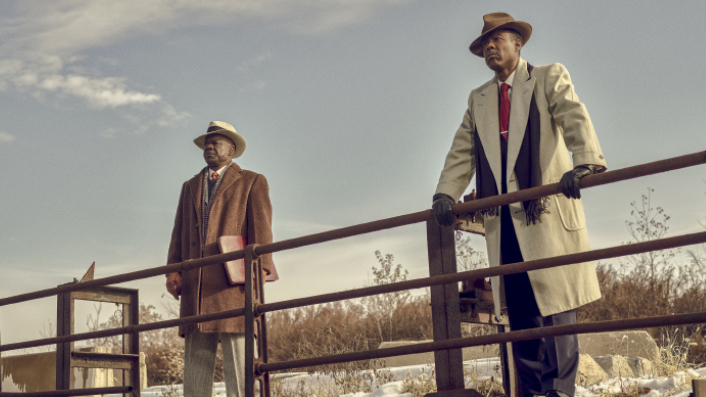
Season 4 leaves that behind slightly, setting up in Kansas where the idea of warring families is easier to believe. And in doing so it feels like Hawley has been liberated, telling a story that’s more completely his, with a bit more at stake. The first episode is titled ‘Welcome To The Alternate Economy’, and as we’re introduced to the multiple crime families who set up in Kansas from 1900 onward, and they’re all defined by ethnicity, it seems pretty clear what Hawley is trying to say. It’s not just about an eye for an eye leaving the whole world blind (and I have no doubt that’s where things are heading as the season progresses), but what got them there in the first place. “The moment our feet touched American soil we were already criminals” says Emyri Crutchfield’s voiceover.
It’s about a country where most people start with nothing but are told they’re all equal. What else are they supposed to do?







